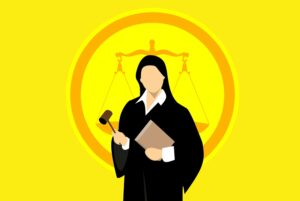What strategies should you use to secure your intellectual property rights in the digital age?

As the world becomes increasingly digital, it is important to understand how to protect your intellectual property rights. Intellectual property is an asset that can be protected and controlled, but it requires the right strategies to do so. In the digital age, there are various strategies you can use to protect your intellectual property rights.
The first, and most important, strategy to secure your intellectual property rights is to register your intellectual property with the appropriate government body. Depending on the country, this may be a copyright registration, patent registration, or trademark registration. By registering your intellectual property, you are ensuring that your rights are legally binding and can be enforced in the event of infringement. Another strategy to protect your intellectual property rights is to use effective contracts.
If you are working with someone else on a project, it is important to have a contract in place that outlines each party’s rights and responsibilities in regards to the intellectual property. This will help ensure that each party is aware of and respects the other’s rights. In addition, you can also use technological tools to protect your intellectual property rights. For example, you can use digital rights management (DRM) software to help prevent unauthorized use of your intellectual property. DRM software can help protect your intellectual property from unauthorized access and copying, as well as from piracy.
Finally, you should be aware of the laws that apply to intellectual property in your jurisdiction. There are various laws and regulations that apply to intellectual property, such as copyright laws and trademark laws. By understanding these laws, you can ensure that you are taking the necessary steps to protect your intellectual property rights.
By following these strategies, you can help ensure that your intellectual property rights are protected in the digital age. It is important to understand the laws that apply to intellectual property and to use effective contracts and technological tools to protect your rights. Additionally, registering your intellectual property is essential to legally enforce your rights. By taking the necessary steps to protect your intellectual property, you can help ensure that your rights are respected and protected in the digital age.
We offer our clients a dedicated and unique experience of expertise that is necessary for the exploitation of intangible assets. We will also endeavor to keep you informed and up-to-date about intellectual property and digital economic issues through our articles and newsletters written by the Dreyfus Legal Team.



 Intellectual property (IP) is a valuable asset that can help businesses grow and protect their investments. Without adequate IP protection, businesses are vulnerable to having their ideas and inventions stolen or copied without any legal recourse. This article will discuss the pitfalls of not having IP protection in place and the importance of having it.
Intellectual property (IP) is a valuable asset that can help businesses grow and protect their investments. Without adequate IP protection, businesses are vulnerable to having their ideas and inventions stolen or copied without any legal recourse. This article will discuss the pitfalls of not having IP protection in place and the importance of having it.
 The advent of
The advent of 
 As an
As an
 Intellectual property (IP) litigation is a process used to resolve a dispute over the ownership or use of IP. It is a legal process that can be used to protect and enforce the rights of IP owners. IP litigation is an important tool for businesses, as it enables them to protect their valuable IP assets and to prevent infringement.
Intellectual property (IP) litigation is a process used to resolve a dispute over the ownership or use of IP. It is a legal process that can be used to protect and enforce the rights of IP owners. IP litigation is an important tool for businesses, as it enables them to protect their valuable IP assets and to prevent infringement.


 Contract law is an area of law that governs the enforcement of contracts and the related legal implications. It is a complex and multifaceted field of law that is applicable in many different scenarios. The European Union (EU) has its own set of contract law regulations that are specifically tailored to the needs of the EU. It is important for businesses, lawyers, and individuals to understand the basics of contract law in the EU in order to effectively navigate the legal landscape.
Contract law is an area of law that governs the enforcement of contracts and the related legal implications. It is a complex and multifaceted field of law that is applicable in many different scenarios. The European Union (EU) has its own set of contract law regulations that are specifically tailored to the needs of the EU. It is important for businesses, lawyers, and individuals to understand the basics of contract law in the EU in order to effectively navigate the legal landscape.
 In the digital age, there are a variety of ways in which businesses can be exposed to intellectual property (IP) litigation. As technology has become increasingly pervasive in our lives, the risk of litigation has increased along with it. The best way to protect your business from IP litigation is to take proactive steps to minimize the risk. Here are some tips for reducing the chances of being taken to court for an IP-related dispute.
In the digital age, there are a variety of ways in which businesses can be exposed to intellectual property (IP) litigation. As technology has become increasingly pervasive in our lives, the risk of litigation has increased along with it. The best way to protect your business from IP litigation is to take proactive steps to minimize the risk. Here are some tips for reducing the chances of being taken to court for an IP-related dispute.


 The world of technology is ever-evolving, and the same applies to the law that governs it. The latest development is Web 3.0 law, which is the legal framework created to govern the newest generation of technology and the internet. This article will explain what Web 3.0 law is and how it can affect businesses.
The world of technology is ever-evolving, and the same applies to the law that governs it. The latest development is Web 3.0 law, which is the legal framework created to govern the newest generation of technology and the internet. This article will explain what Web 3.0 law is and how it can affect businesses.